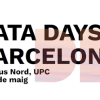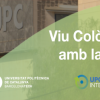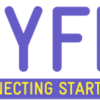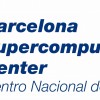FIB statement: teaching organization of 2020-2021 academic year
Statements regarding the planning and organization of the autumn semester of the 2020-2021 academic year.

The Governing Council of the UPC approved on 2nd July the Plan for the resumption phase that regulates the activity of the UPC during this period.
The Plan for the UPC resumption phase is based on the Sectoral University Plan, approved by the PROCICAT Technical Committee, on 29th June 2020.
This plan states that teaching activities can be carried out face-to-face following the health recommendations at all times, and with capacities being limited. In addition, spaces in which air renewal is not possible (through windows and doors, or using air conditioning) will not be used for teaching purposes.
Given the sanitary conditions, the plan for the UPC resumption phase, and the resources that are available we have to adjust the academic activity of FIB degrees for the next autumn semester of the 2020-21 academic year.
Below, we inform you of the most relevant questions of date 10th July 2020.
Organisation of the teaching activity
The FIB degrees will be organised according to the following criteria.
Bachelor Degree in Informatics Engineering and Bachelor Degree in Data Science and Engineering
The compulsory subjects from Semester 1 to Semester 4 will be carried out in the usual format, being 100% face-to-face.
Generally speaking, the rest of the subjects will be taught 50% face-to-face (in general, 2 teaching hours for each subject).
Exceptionally, there may be some subjects that are taught in a different format that can range from online to usual face-to-face in other semesters.
Màster en Enginyeria Informàtica
Overall, it will be taught 100% face-to-face.
Exceptionally, there may be some subjects taught in a blended format.
Master in Innovation and Research in Informatics
The compulsory subjects are expected to be taught in the usual face-to-face format, except for the laboratories of the AMMM and SDME subjects that will be taught synchronously online.
The rest of the subjects are expected to be taught 100% face-to-face.
Master in Artificial Intelligence
The UB subjects will be taught 33% face-to-face. In general, 2 teaching hours for each subject will be taught synchronously online in the morning for Theory, and 1 teaching hour of face-to-face during the afternoon for Laboratory.
The URV subjects will be taught 100% online, in general in a synchronous way, meanwhile there is not a significant and good evolution of the pandemic. If a good evolution is achieved, moving to face-to-face will be done with the agreement of the students.
The UPC subjects will be taught 100% face-to-face in general. Only laboratories of the two compulsory subjects will be taught asynchronously online.
The students of the Master Degree in Secondary, Upper Secondary Education and Vocational Training will receive a specific message with the information of their degree.
Academic calendar
The teaching period starts 14th September and ends 22nd December, 2020. In the case of MAI students, UB and URV subjects start 28th and 21st September, respectively.
The current semester days 4,5,6,9 and 10 of November are set up for carrying out face-to-face assessments. During those days, there will be no classes (neither face-to-face nor online).
Time scheduling
The schedules for the next semester have been arranged following the face-to-face criteria previously explained, and with the aim of creating steady groups, minimizing the number of classroom changes, and reducing the number of days that students have to commute to campus to carry out their face-to-face teaching activities.
Generally, the time slot in the mornings will be from 8 am to 2 pm, and the time slot in the afternoons will be from 3 pm to 9 pm. The slot from 2 pm to 3 pm is kept in case it is necessary to carry out additional cleaning service in the classrooms.
Enrolment
The exam schedules and calendars have been arranged taking into account the most common situation, where the student takes the subjects corresponding to the semester defined in the curriculum.
As for the Bachelor Degree in Informatics Engineering (GEI):
- Semester 1 Grouping: Physics, Mathematical Foundations, Introduction to Computers, and Programming I (100% face-to-face).
- Semester 2 Grouping: Computer Organisation, Mathematics I, Mathematics II, and Programming II (100% face-to-face).
- Semester 3 Grouping: Databases, Computer Interfacing, Data Structures and Algorithms, Probability and Statistics, and Operating Systems (100% face-to-face).
- Semester 4 Grouping: Computer Architecture, Business and Economic Environment, Interaction and Interface Design, Introduction to Software Engineering, and Computer Networks (100% face-to-face).
- Semester 5 Grouping: Parallelism, Programming Projects, and 3 compulsory subjects from the chosen specialisation. Alternatively, you can take a supplementary specialisation course or an optional subject (50% face-to-face).
- Semester 6, 7 and 8: Rest of the subjects of the selected specialisation, optional subjects and bachelor’s thesis. During these semesters, there is not a defined grouping of subjects. Therefore, the subjects have been distributed among the teaching hours (about 50% face-to-face).
As for the Bachelor Degree in Data Science and Engineering (GCED)
- Semester 1 Grouping-> Algebra, Algorithmics and Programming I, Calculus and Logic and Discrete Mathematics (100% face-to-face).
- Semester 3 Grouping -> Algorithmics and Programming III, Databases, Probability and Statistics II, Signals and Systems and Information Theory (100% face-to-face).
- Semester 5 Grouping-> Machine Learning II, Advanced Databases, Information Retrieval and Analysis, Entrepreneurship and Innovation and Information Visualization (50% face-to-face).
- The optional subjects will be carried out under the conditions defined by each subject.
A student who enrols in the same group/subgroup of a subject grouping (for example, the GEI-S2 grouping: EC group 21, M1 group 21, M2 group 21 and PRO2 group 21) will have a compact schedule that, where possible, follows health recommendations. That is, the idea is to be part of a steady group of students throughout the course, minimizing the number of classroom changes and reducing the number of days that you have to commute to campus to carry out face-to-face teaching activities.
The students who follow the recommendation of enrolment and take subjects 100% face-to-face (from S1 to S4) will generally have 4 days of face-to-face classes on campus. The rest of the days are for online teaching activities and personal work.
The GEI students who follow the enrolment recommendation and take the PAR, PROP and compulsory specialisation subjects with 50% face-to-face teaching will generally have 2 days of face-to-face classes on Campus. The other days are for online teaching activities and personal work.
The complementary GEI specialisation and the optional subjects are distributed among the days of the week. Consequently, the number of days on campus for face-to-face classes will depend on the set of enroled subjects.
Considering the capacity limitations and the sanitary restrictions, it is VERY IMPORTANT that you enrol the groups of the subjects being coherent and in line with the arranged schedules (the same group and subgroup in all the subjects that are part of a grouping).
You have to bear in mind that restrictions will apply to modifications of enrolment in the next semester, and so the changes in group classes will be an exception.
The next enrolment will be online and we will enable telematics channels to make inquiries as usual.
Resources required for monitoring academic activity
The situation arisen from the pandemic has determined the planning of the next academic course.
As you may know, it is completely unadvisable to share material, especially computers. For that reason, we are launching several initiatives in order to make laboratory classes easier by using your laptop. In this way, the use of a shared computer would be avoided.
Additionally, several computer classrooms do not meet the conditions to be used to this day. This situation forces us to schedule laboratory classes in classrooms that until now were only used to make theories and problems. Students who make laboratories in these areas (basically floors 1 and 2 of buildings A5 and A6) will have to use their laptops.
Although we keep computer classrooms in the current layout to hold laboratory classes, the plan in the UPC for the resumption phase only considers that the computer classrooms are open at the time of taking a class.
Likewise, the online activities of the subjects require that you have a computer and internet connection at your home. This situation will become the standard in the event of a new cancellation of face-to-face teaching activity at universities, which would mean carrying out all teaching activity in an online way.
For all of the above reasons, if you do not have a laptop we highly recommend that you get one.
Information for students and course guides
The FIB teachers are working to adjust the subjects to the context of the next semester.
Before enrolment, the course guides of the subjects published on the FIB website will inform of the changes introduced. From 20th July, the information will be available in the addendum section for the autumn semester of the 2020-21 academic year.
The health situation evolves day by day, and a second wave of Covid-19 outbreak could require us to change the planning that I have described for you in this message. You will always find up-to-date information on the FIB website.
© Facultat d'Informàtica de Barcelona - Universitat Politècnica de Catalunya - Website Disclaimer - Privacy Settings












